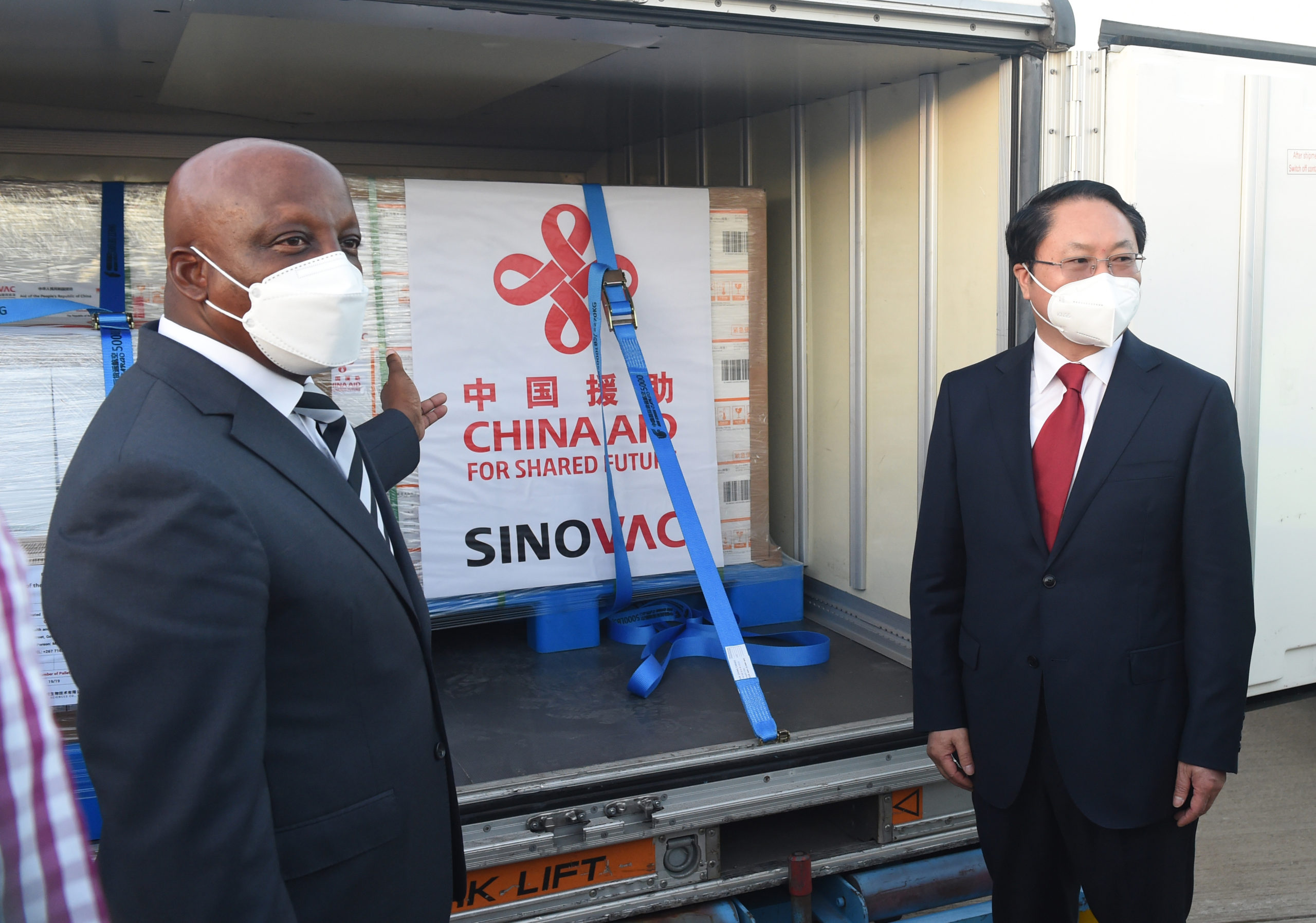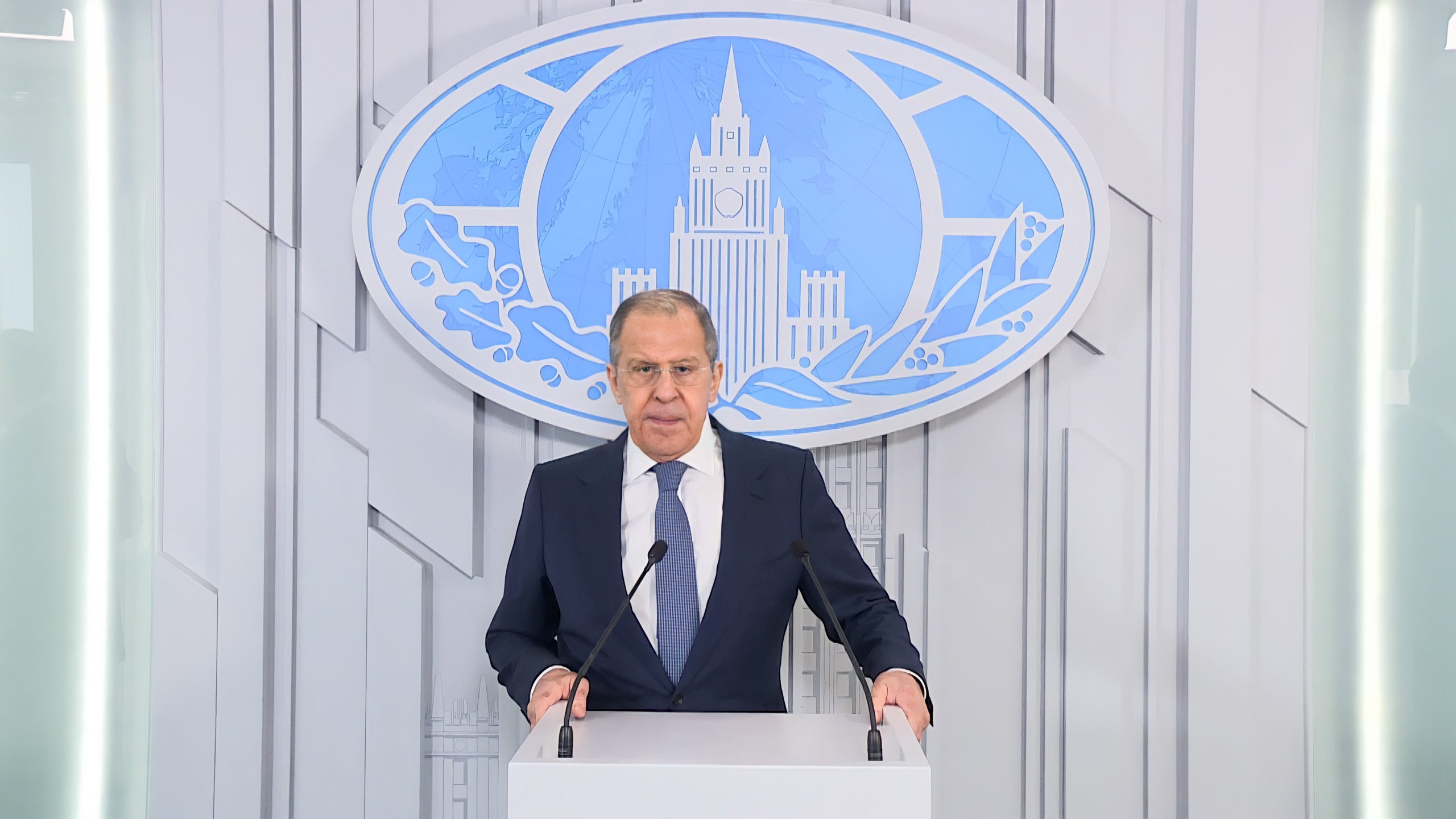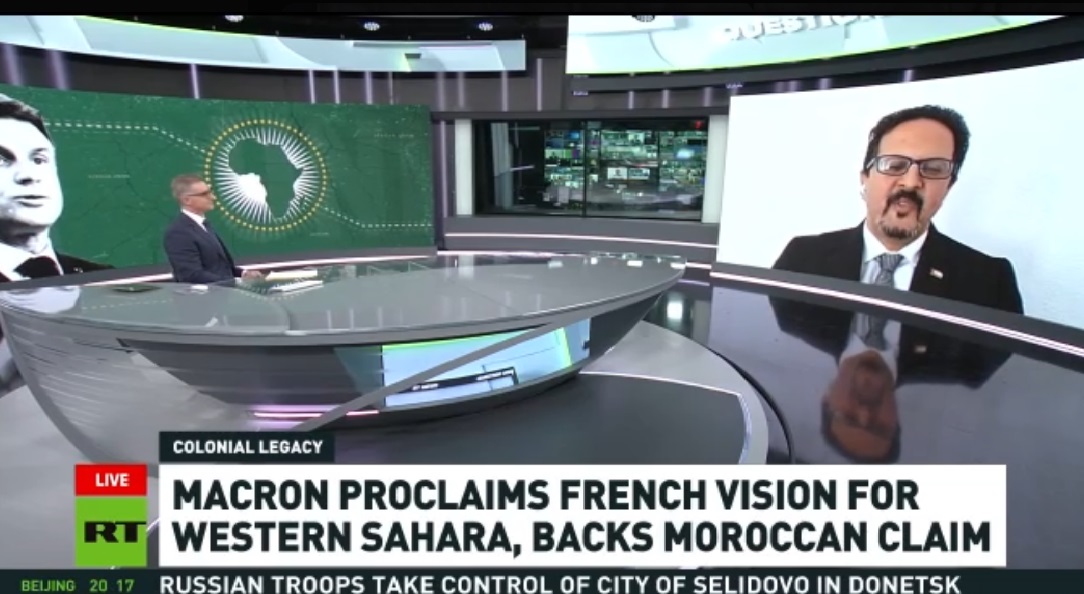
H.E. Wang Xuefeng, Chinese Ambassador to Botswana with Kabo Morwaeng, Minister of Presidential Affairs, Governance and Public Administration at Sir Seretse Khama International Airport, April 25th 2021 to receive a donation of 200, 000 doses of Sinovac Covid-19 vaccines from the Government of the Peoples Republic of China
By Yi Fan
With COVID vaccines rolled out in more countries, we have reason to expect to be more equipped in the fight against the pandemic. Exiting the pandemic and reviving the economy is a first-order priority for all countries.
Africa, like other parts of the world, has fought hard in containing the virus and reinvigorating the economy. Addressing the fall-outs and looking forward to post-COVID recovery, governments of African countries have adopted comprehensive response plans. In Ethiopia, for example, relief assistance has reached families and businesses, in addition to tax cuts and liquidity support.

For us all to navigate this trying time, cooperation and mutual help between China and Africa are critically important. Last week, China hosted the annual meeting of the Boao Forum for Asia, a China-based international forum with a mandate to explore better solutions for the common good of the whole world despite its name.
Delegates from both online and offline discussed how the world can best recover from the pandemic. As countries in Africa are also striving for a stronger emergence from the pandemic, perhaps here are some of the priority areas where greater synergy can be built:
China and Africa can grow faster together with the help of the Belt and Road Initiative.
The pandemic brought the world to a sudden halt. But for most of the time, the Belt and Road projects have remained resilient in keeping global supply chains running. The freight trips along the New International Land-Sea Trade Corridor were up by 104.9% in 2020. New routes were opened, such as the one from the southwestern Chinese city of Nanchong to Nigeria.
A record number of goods, including the much-needed medical supplies, were shipped to cities in Africa, Asia and Europe. On this continent, the Ethiopia-Djibouti Railway, a flagship Belt and Road project, recorded an over 51 percent increase in revenue in the first half of 2020, when the pandemic was at its height. The railway was instrumental in ensuring the transportation of supplies in Ethiopia.
With China at the beginning of implementing its 14th Five-Year Plan, a guideline toward more efficient, equitable and sustainable growth, the Belt and Road Initiative is now aiming at higher-quality development. This, along with China’s own economic recovery, will foster greater connectivity, openness and inclusiveness, further energise the development of participating countries, and, as a result, inject greater confidence and impetus to global post-COVID growth.
China and Africa can embrace new prospects with a digital boost.
The pandemic has, to some extent, given a strong boost to the already-flourishing digital economy worldwide. New technologies and creative forms of business including 5G, online shopping and remote learning are gaining momentum, providing a new pathway for economic growth.
Both China and Africa will benefit from this digital boom. Africa, a continent with around 1.3 billion people, is now enjoying fast growth in telecommunications and e-commerce. As it seeks to improve its digital infrastructure, China is ready to share its experience in e-commerce, digital payment and logistics management.
Such mutually-beneficial cooperation is already paying off during the pandemic, as the two cooperated in selling African agricultural products, including coffee and chili sauce, on Chinese e-commerce platforms. Likewise, Kilimall, an online shopping mall set up by Chinese founders in Africa, has served as a window for African consumers to purchase Chinese products.
Multilateral economic cooperation can make us all better off.
The pandemic has reminded the world of the significance of cooperation. This is what both China and Africa have advocated as staunch supporters for multilateralism and free trade.
For Africa, the recently-commenced African Continental Free Trade Area (AfCFTA) has made the continent the world’s largest free trade area in terms of participating member states after the formation of the World Trade Organisation. Signed by 54 African Union members, the AfCFTA will increase Africa’s capacity to respond to future crises, disease outbreaks and global economic shocks, and also assist in Africa’s economic recovery.
China too has made similar endeavours: setting up platforms for international economic cooperation, including the China International Import Expo and the China International Fair for Trade in Services; facilitating the signing of the Regional Comprehensive Economic Partnership (RCEP) agreement, one of the largest free trade agreements in recent history.
These efforts of China and Africa illustrate the critical importance of cooperation and multilateralism in unlocking economic potential. They may also present major opportunities for each other and the world at large, and pave the way for closer economic ties among countries and shared prosperity in the post-COVID world.
For a changing world eyeing for closer cooperation and a stronger, more resilient post-pandemic global economy, China and Africa, coming together, will surely set for the world a fine example of mutually beneficial cooperation, and contribute their share to the post-COVID global economy.
Yi Fan is a Beijing-based observer of international affairs.









